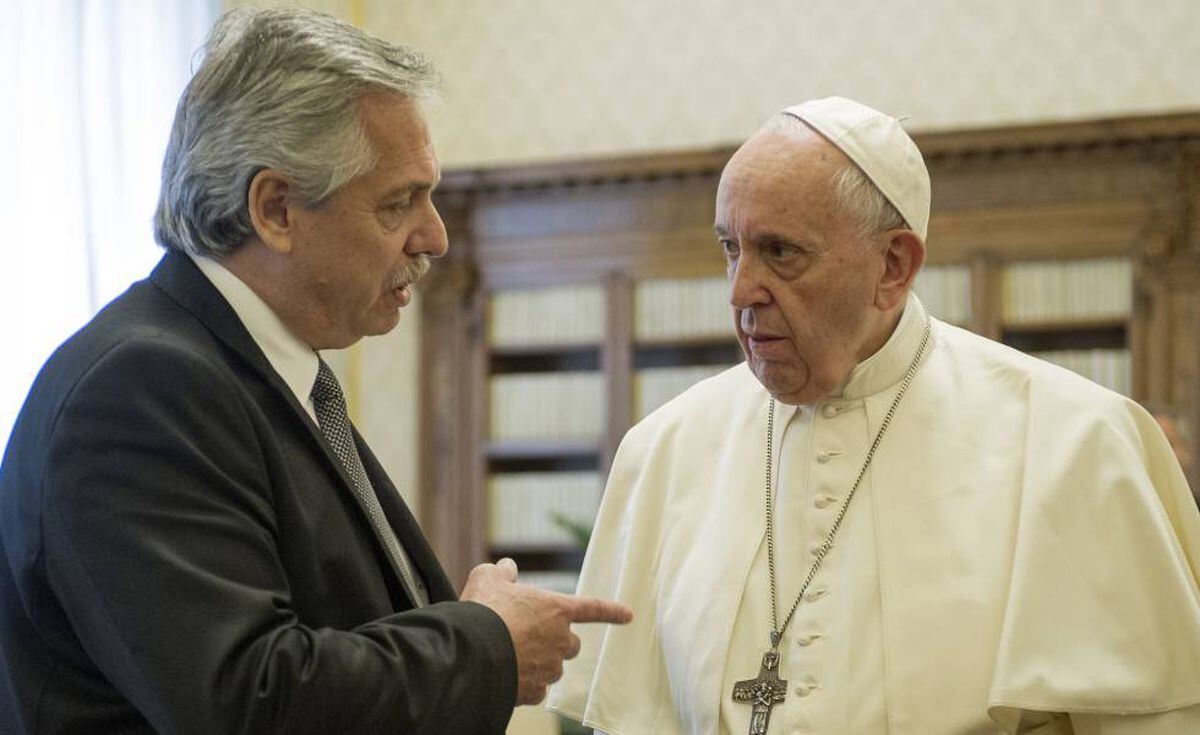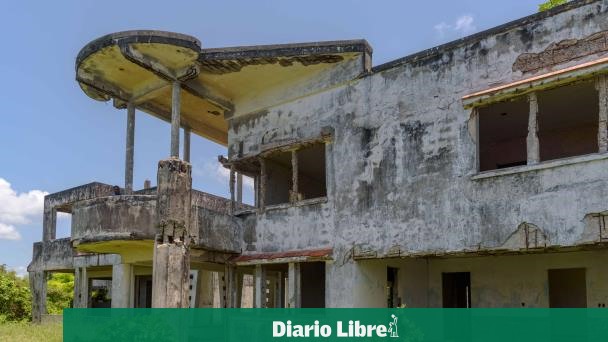Cardinal George Bergoglio told Father George Russo, Rector of the Metropolitan Cathedral. It was Tuesday, February 26, 2013, and Bergoglio was leaving Buenos Aires for Rome to attend the conclave at the Vatican to elect Benedict XVI’s successor. The Argentine bishop calculated that he would have enough time to participate in Holy Thursday in April, but once he became Pope Francis, he did not return to his homeland. The delay in the official visit is the meat of all kinds of political speculation in Argentina, now being reactivated for the tenth anniversary of his pontificate.
Argentinians see Francisco as one of their own and let him know by dragging him through the mud of domestic politics. For a decade, in Buenos Aires, every message from the Vatican has been analyzed in local terms, measured by the width of a smile with this or that politician or the stern gesture of a Jesuit to a former president. Controversies started from the day it was announced on March 13, 2013. “A Peronist Pope” had come to San Pedro. The world believed it and it was established as a doctrine in Argentina. “I have never been associated with the Peronist Party, I am not even a militant or a supporter of Peronism. I confirm that it is a lie”, Francisco finally said in the book. Shepherd (Ediciones B, 2023), the product of long conversations with journalists Sergio Rubin and Francesca Ambroghetti. “My writings on social justice have led people to say that I am a Peronist. What would be wrong with the hypothesis that there is a Peronist concept in politics?” Francisco wondered to end the debate.
“In the book it says ‘I’m a Peronist is a lie'”, highlights Sergio Rubin. “He may be sensitive to the original flags of Peronism, social justice and the poor, but he doesn’t want to be a bigoted Peronist. [el expresidente liberal Mauricio] Macri matters of local politics,” he adds. Historian Marcelo Laraqui, author Francis Cote (2016, Sudamericana) explain that Bergoglio’s closeness to Peron’s theory is “based on the relationship between the theology of the people and Peronism”. “The theology of the people, which was very influential in Latin America in the seventies but was far from the liberation theology of Marxism, which was absent in Argentina, understood that the priest had to accompany the people because they already had faith and wisdom. That hope is from the gospel.”
As Archbishop of Buenos Aires, Cardinal Bergoglio maintained a tense relationship with Presidents Nestor and Cristina Kirchner. This, according to Laraqui, “is about the problem of leadership, what is the voice of the political leader and what is the voice of the religious leader.” In 2013, the relationship changes when Christina Kirchner realizes that fighting the Pope as president is not a good idea. He went to Santa Marta and met at length with a religious leader whom he had until then considered an opponent of his administration. “Kirchner was told not to mess with the Pope, and he did what he had to do. But it didn’t end well because she starts abusing the relationship, and he’s terrible at it, and he doesn’t like being used,” says Rubin.
In 2015, Mauricio Macri arrived at the Casa Rosada, and after a 22-minute meeting, Francisco seemed to get angry. The relationship between the two was not great, and that was because “Marcos is like Pena [jefe de Ministros] They are telling Macri to stay away from the Pope to show himself as a progressive”, says Rubin. Alberto Fernandez rushed to see the Pope after his inauguration in 2019, but the president’s insistence on declaring him a personal adviser to his government cooled the relationship. A coup d’état occurred in December 2020 with the approval of legal abortion in Argentina.
“Francisco knows he is being used politically in Argentina and believes there is a lot of political manipulation. But he doesn’t cry in corners, he talks about attitudes, not people”, Rubin clarifies. Are the circumstances right for you to finally move to Argentina? Francisco himself said in a recent interview with the portal infobae “It may be”, but only after the October general elections. “During election time, no trips are made to any country to prevent it from being used by the ruling party for re-election or anything like that. I want to go to Argentina, he said.
If he hadn’t done so by now, Laraqui says, “he didn’t want to get caught up in the schism of conservative Catholics who were going to condemn him in some way for being close to the poor.” For Rubin, a visit would have been possible in the first months of the papacy, but it was too late. “He is caught in a rift, and his arrival will be the cause of great controversy. As a politician he wants to contribute to unity, and whether to come is a rift or he will come”, he warns.
“Yes, we trust your wisdom to say when”
Argentine politicians do not resign. This Monday, on the occasion of the tenth anniversary of his pontificate, they sent a letter to Francis expressing “love and closeness” for his work in favor of the poor. The letter was signed by Fernández and Kirchner, as well as opposition figures such as Buenos Aires city government president Horacio Rodríguez Loretta and former governor María Eugenia Vidal, as well as 13 active provincial presidents, unionists or leaders. Social movements. Many of them do not talk to each other when there is no obvious conflict through the media. Former President Mauricio Macri did not join, although campaigners continued to add signatures.
The miracle of unity was crowned by a request to visit Argentina. “We are aware of the opposition your work will create among those who may see legitimate interests unaffected. While we love and look forward to your visit, we trust your wisdom to say yes, and eventually when,” the letter reads. Argentinians will have to wait until the presidential election is over. Then it will be looked at.
Subscribe to the EL PAÍS América newsletter here and get all the latest news on the region.




